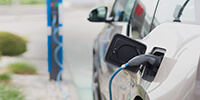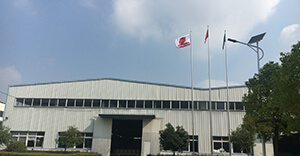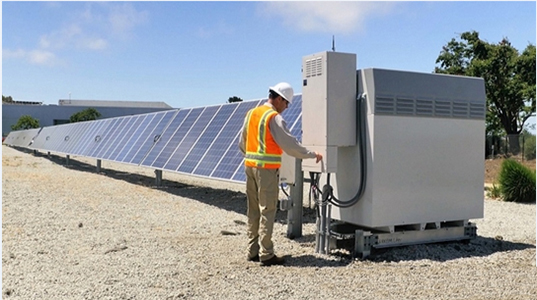How to maintain the operation of solar power generation system?
|
Nowadays, with the increasing number of large and medium-sized energy storage system deployments, people are increasingly aware that battery storage systems that are going to be operational must be properly managed and require strong operational and maintenance plans. The operation and maintenance concept of solar power generation system is “first sell the project, then consider operation and maintenance”, while the energy storage project is different, and services such as operation and maintenance and financial processes must be considered from the beginning. Utilities and other savvy asset investors want to know what type of operations and maintenance are available? How will the operation and maintenance team be qualified? And how to provide services to ensure the productivity of the new system. In other words, by deploying energy storage systems, powerful operations teams and plans become an important part of the development and implementation of production agreements. There is some overlap between the best practices for the operation and maintenance of solar power systems and energy storage systems: in both cases, maintainability design promotes healthy operation of the system. Quality products and good deployment are among the best ways to avoid poor system performance. Predictive maintenance supported by advanced data analysis techniques is more cost-effective than post-maintenance whenever possible problems, and its level of operation and maintenance is closely related to the financial strength of the operator. But if it is said, "the service provided to the energy storage system is not fundamentally different from the service provided to the solar power system", this is misleading. In many respects, energy storage systems are more risky to operate and maintain, and the financial risks they manage are greater than those of solar power systems. Energy storage systems are more complex to operate and maintain than their solar power systems, involving a wider range of components and subsystems, as well as power distribution and load management issues, and require a higher level of technical training and expertise. Why is the risk of energy storage systems higher? Because it is no longer just component work and maintenance, such as trackers, inverters or solar panels. With energy storage systems, many other critical layers of solar power systems can be serviced. As an energy storage system operation and maintenance service provider, this is not only related to batteries, but also has expertise in every aspect of the energy storage system, in order to help manage asset owners by ensuring that energy storage system assets operate at optimal levels. Financial risk. If the performance of the solar power system is degraded due to unqualified operation and maintenance services or problems with the inverter or the fault panel, although the power generation level is reduced, the solar power system will still operate and can be restored by proper maintenance. . However, if the lithium-ion energy storage system suffers from thermal runaway or other events that cause degradation, the battery pack will not recover, and the energy storage system may become a permanent low-performance or even stranded asset, and the asset owner may lose a lot. Comprehensive skills with multiple technologies The energy storage system operation and maintenance provider must be able to serve the entire energy storage system. Whether it is a containerized lithium-ion battery platform or a flow battery, it must monitor and solve any abnormalities in various electrical, electromechanical, chemical and thermal subsystems. . There is also firmware and software, fire protection systems and battery management platforms that require maintenance. A keen understanding of the thermal load curve and other performance metrics as well as potential points of failure is required. Technicians need a comprehensive set of skills across multiple technologies to handle any issues that may arise during the system's lifecycle. As with solar power systems using intelligent operation and maintenance technology, monitoring, two-way communication and connectivity, data analysis, and more and more machine learning and artificial intelligence algorithms can ensure that energy storage systems operate well and play a key role in providing owners with expected revenue. . Although solar power systems or inverters may have dozens of data points that need to be tracked, there are hundreds of points of interest to be monitored in energy storage systems. Predicting when problems can occur and planning them, rather than reacting after a problem occurs, is more important to the life cycle of the asset. The data it collects is much more complex and the things that must be analyzed are more diverse. |














